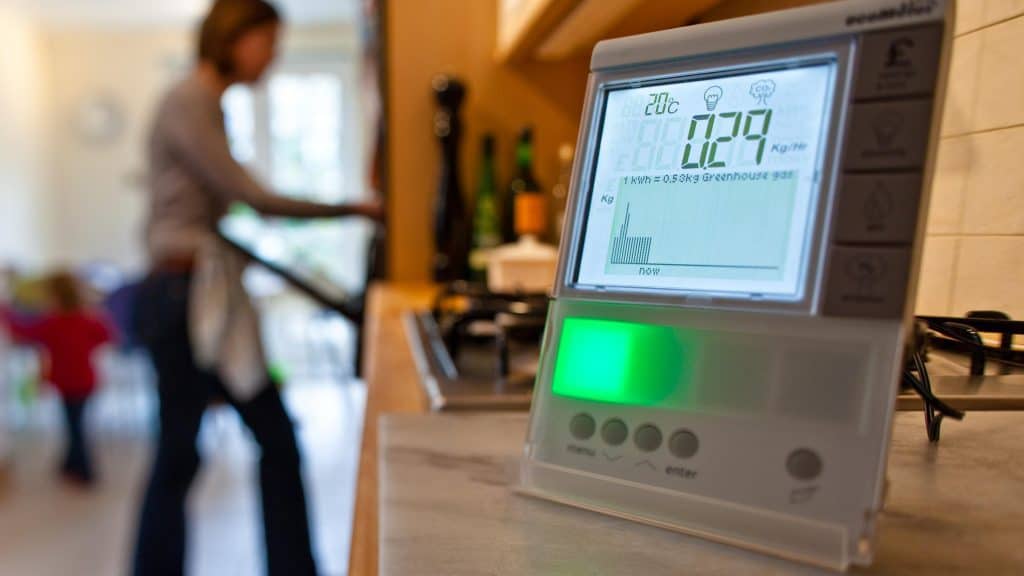Old energy meters are so boring; today, smart meters are what all the cool kids want, or so the government tells us but is it true? Smart meters will be offered to every home and small business in the UK by 2020, but is it a good idea to have one installed?
This article will give you the our view about smart meters and if they are worth the time and effort.
What Is A Smart Meter?
Smart meters are a new kind of energy meter with new features and functions designed to help consumers manage their energy consumption and understand their bills.
These functions include real-time monitors for energy use and wireless communication with your energy supplier. As far as the meters themselves, there are two types, SMETS 1 and SMETS 2 (Smart Meter Equipment Technical Specifications), which are described below:
- SMETS1 – Using 3G technology, these are the older style meters (pre-2017), and some suppliers may not be able to communicate with them, so if you switch your meter may revert to a “dumb” meter and your bill will be estimated.
- SMETS2 – These meters use technology that is more advanced and communicate through a central data network, but they are not widespread yet. Most energy suppliers will have access to this technology, which will keep these meters running “smart”.
How do Smart Meters Operate?
Smart meters collect information about your home’s energy consumption in a real-time format similar to other smart home devices, or close to it. This data is on display for you to review any time you like via the interface with the meter that is typically inside your home.
This information is also sent to your energy supplier, and can include data on:
- Consumption – how much gas and electricity were used in your home, represented in kilowatt-hours (KwH) over the periods of hourly, weekly, and monthly.
- Spending – the pounds spent in the same periods, updated every thirty minutes on a daily basis
- Goals – not every smart meter has this display, but some have budget functions to let you set goals with the aim of reducing the energy consumption in your home.
Smart meters make it easier to understand how much you are spending on energy so that you can make conscious choices on saving power as you go about your daily routine. Along with the smart meter, a smart monitor is installed inside your home where you can see how much energy you are consuming at any given time in pounds and pence. Simple changes such as switching off lights, turning down the boiler temperature, and unplugging devices that are not in use have an impact on your energy spend.
The meters also mean that your statement will be more accurate every month, rather than just an estimate based on prior usage. This eliminates the need for you to take readings yourself, and the energy company does not have to send someone out periodically to do so either. The consumption and spending information is in real-time, so everyone is in the know.
How Many Smart Meters Are Running in The UK?
The smart metering program has a target of 50 million installations to consumers and small businesses by 2020. So far, just over 11 million smart meters have been installed, which represents a 10 percent increase between 2017 and 2018. Consumers who are aware of smart meters cite cybersecurity concerns, cost, and disbelief that the devices will save them on energy bills as the top reason they do not have the device installed.
What Are The Downsides Of A Smart Meter?
Though installation is relatively painless, you will still need to be home for the energy supplier to access and change your meter to a smart version. You will also need to be trained on how the new smart meter works and what information you can get from the display.
Fortunately, smart meters do not cost up-front, but the cost is absorbed into your energy bills. Some consumers have voiced concern about data protection for their smart meters, and they are not wrong.
Any online technology can be vulnerable to attacks by hackers, so the UK government has set rules about the data collected by smart meters, so you will need to choose:
- Frequency – data collection by your supplier is collected monthly, but you can opt-in for daily and half-hourly collection points as well.
- Sharing – whether your energy supplier can share your data with other companies and organizations is something you can choose to opt in or out.
- Marketing – you can choose whether to allow your energy company to send you special offers and other marketing communication.

I Already Have A Smart Meter – How Do I Save Energy?
If you already took the initiative to install a smart meter, it is likely that you are more willing to make simple changes to your life in order to save energy. These are some tips from other smart meter homes that helped them experience more savings:
Gas:
- Adjust your heating by turning it down just 1º C. Still not chilly? Keep making small adjustments in temperature, which can save up to £75 per year per adjustment!
- Use timers to switch heating and hot water on and off according to your household schedule.
- Don’t heat rooms that aren’t being used or used only for storage. Turn of the room radiator and keep the door closed.
- Block drafts around doors, windows, lefts, and other openings, which can save up to £20 per year.
Electricity:
- Don’t refrigerate or freeze warm food; not only is this unsafe for consumption purposes, it also uses more energy.
- Defrost frozen foods in the refrigerator so their extra cold temperatures can help save energy as they thaw.
- Line dry clothes when possible instead of tumble drying.
- Run your washing machine and dishwasher only when they are full.
- Switch off gadgets rather than leaving them plugged in, which could save around £30 per annum on energy bills.
- Go for LED bulbs and replace old-style light bulbs in all your lamps and fixtures. There are light bulb reviews online that are quite handy when choosing the right bulb.
- Don’t be a re-boiler and boil only the amount of water you need for your cuppa and you’ll save enough for cake! Your kettle is one of the most inefficient energy consumers in your home, so think before you make that next hot bevvie.
Are Smart Meters Worth It?
Smart meters are worth it to people who want to make a conscious reduction in their energy consumption, either to save money or be more environmentally friendly. What saves the most money when it comes to energy is searching a comparison site for the best energy prices.
Fortunately, there are many methods of comparing energy suppliers and all you need is your postcode. Switching energy suppliers is no problem, even if you have a smart meter, but the SMETS 1 version may not be compatible with your new supplier’s communication technology, changing it back to a “dumb” meter.
Overall, smart meters can save money in homes that intend to monitor their usage and adjust their power consumption behaviour accordingly. A smart meter is only going to save if you are energy conscious, so monitor your consumption and switch to save!



2 comments
How do you get a smart meter?
Smart meters do not save you money or the alleged environmental hoax, just a con had one for two years hasn’t saved me a penny I still have to have the meter read
Comments are closed.